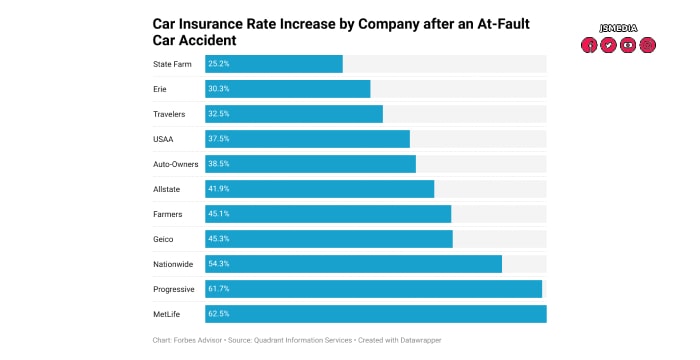JSMedia – The Michigan Catastrophic Claims Association has raised the assessment for insured vehicles to $220 from $100. The new rate will take effect July 2, 2020, and continue until June 30, 2021. The association says the increase is based on the escalating costs of medical care and attendant care, and is necessary to keep rates down for consumers. However, some critics argue that the fee is unnecessary and that the public is denied access to the information that informs rate setting.
The MCCA’s budget is already $2 billion short, but the association’s assessment is up from $170 to $192 per vehicle. That’s a 29 percent increase in fees since June 2017. If you have two cars and have an MCCA-managed policy, you will pay about $100 more a year. The Michigan Catastrophic Claims Association, or MCCA, is a nonprofit association run by auto insurance companies. In 2018, it paid out $1.2 billion in catastrophic injury claims, including $683 million in attendant care, $140.5 million in prescriptions, and $107 million in hospitalization costs. The MRCCA’s annual assessment is used to compensate the Michigan Department of Insurance and Financial Services for the claims paid by motorists.
The MCCA has raised its assessment fee to cover the catastrophic injury fund, which is used to pay accident settlements. The new fee will be $192 per vehicle per year. On July 1, the assessment will jump to $220 per vehicle. This fee is the same as that for other states that do not charge an assessment, but it will still save you money. In other words, if you have a car insurance policy in Michigan, you should prepare to increase your premiums, despite the fee hike.
Auto Insurance Rates to Climb As The Michigan (MCCA) Raises Fee

The MCCA has a $170 fee for each insured vehicle. The fee is a part of the insurance premium and is included in the Michigan auto insurance premium. Its governing body is the MCCA. The association has a $2.3 billion budget deficit. This is a significant issue, as it funds the MCCA’s services. The MCCA’s funding is important for Michigan residents.
The MCCA has raised the assessment for all insured vehicles in Michigan. The fee represents a $161 per-vehicle cost for personal injury protection. It does not disclose the amount of this fee. If you’re interested in getting a car insurance policy in Michigan, consider the MCCA’s proposed assessment. You’ll have to pay this if you want the cheapest possible car insurance rate.
The MCCA raises the assessment annually to cover the costs of personal injury protection. The MCCA is responsible for the cost of medical coverage for the state’s drivers. Its new fee is lowered by 60 percent and covers the costs of medical benefits and other services. The MCCA’s assessment is also mandatory for the insurance companies in Michigan. This fee will increase auto insurance rates in the state.
The MCCA is refusing to reveal the reasons behind the fee increases. It has argued that the fee should be reduced to $100, which is not a significant amount. However, it is important to remember that the fee has many hidden costs. This means the MCCA has a lot of money that it can’t spend on the government. The MCCA’s assessment is mandatory for all auto insurance companies in the state.
The MCCA has raised its fees to cover the costs of catastrophic medical claims. The fees have increased to $555,000 since 2000, according to the MCCA’s website. Despite the increases, it is unclear what effect the fee hike will have on Michigan motorists’ auto insurance rates. Nevertheless, the increased fee will not affect those who already have an insurance policy. Amounts for car insurance in Michigan are expected to increase in the coming years.
The MCCA has raised its fees for all types of insurance coverage. Its fees are the primary way the state pays for these benefits. The MCCA’s fee for coverage of personal injury protections is $220 annually. However, the fee increases are not related to the type of coverage. They are calculated to cover costs of accidents involving brain injuries, back injuries, and neck trauma.

